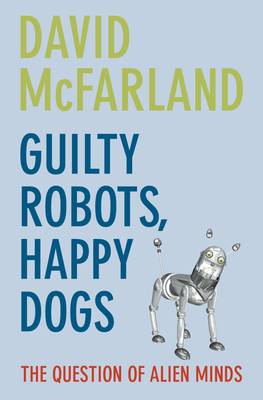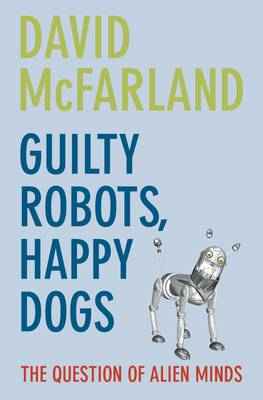
Je cadeautjes zeker op tijd in huis hebben voor de feestdagen? Kom langs in onze winkels en vind het perfecte geschenk!
- Afhalen na 1 uur in een winkel met voorraad
- Gratis thuislevering in België vanaf € 30
- Ruim aanbod met 7 miljoen producten
Je cadeautjes zeker op tijd in huis hebben voor de feestdagen? Kom langs in onze winkels en vind het perfecte geschenk!
- Afhalen na 1 uur in een winkel met voorraad
- Gratis thuislevering in België vanaf € 30
- Ruim aanbod met 7 miljoen producten
Zoeken
€ 32,45
+ 64 punten
Omschrijving
When we interact with animals, we intuitively read thoughts and feelings into their expressions and actions. It is easy--often irresistible--to suppose that they have minds like ours. And as technology grows more sophisticated, we might soon find ourselves interpreting the behavior even of robots in human terms.
But is our natural tendency to humanize other beings philosophically or scientifically justifiable? Can we ever know what non-human minds are really like? How different are human minds from the minds of animals or robots? In Guilty Robots and Happy Dogs, David McFarland offers an accessible exploration of these and many other intriguing questions, questions that illuminate our understanding the human mind and its limits in knowing and imagining other minds. In exploring these issues, McFarland looks not only at philosophy, but also examines new evidence from the science of animal behavior, plus the latest developments in robotics and artificial intelligence, to show how many different--and often quite surprising--conclusions we can draw about the nature of minds "alien" to our own. Can robots ever feel guilty? Can dogs feel happy? Answering these questions is not simply an abstract exercise but has real implications for such increasingly relevant topics as animal welfare, artificial intelligence, and cybernetics.
Engagingly and accessibly written, and thought-provoking from start to finish, Guilty Robots and Happy Dogs touches on the very nature of mind and its evolution. It is essential reading for anyone curious about animal behavior, robotics, artificial intelligence, or the nature of the human mind.
But is our natural tendency to humanize other beings philosophically or scientifically justifiable? Can we ever know what non-human minds are really like? How different are human minds from the minds of animals or robots? In Guilty Robots and Happy Dogs, David McFarland offers an accessible exploration of these and many other intriguing questions, questions that illuminate our understanding the human mind and its limits in knowing and imagining other minds. In exploring these issues, McFarland looks not only at philosophy, but also examines new evidence from the science of animal behavior, plus the latest developments in robotics and artificial intelligence, to show how many different--and often quite surprising--conclusions we can draw about the nature of minds "alien" to our own. Can robots ever feel guilty? Can dogs feel happy? Answering these questions is not simply an abstract exercise but has real implications for such increasingly relevant topics as animal welfare, artificial intelligence, and cybernetics.
Engagingly and accessibly written, and thought-provoking from start to finish, Guilty Robots and Happy Dogs touches on the very nature of mind and its evolution. It is essential reading for anyone curious about animal behavior, robotics, artificial intelligence, or the nature of the human mind.
Specificaties
Betrokkenen
- Auteur(s):
- Uitgeverij:
Inhoud
- Aantal bladzijden:
- 252
- Taal:
- Engels
Eigenschappen
- Productcode (EAN):
- 9780199219308
- Verschijningsdatum:
- 1/05/2009
- Uitvoering:
- Paperback
- Formaat:
- Trade paperback (VS)
- Afmetingen:
- 127 mm x 193 mm
- Gewicht:
- 204 g

Alleen bij Standaard Boekhandel
+ 64 punten op je klantenkaart van Standaard Boekhandel
Beoordelingen
We publiceren alleen reviews die voldoen aan de voorwaarden voor reviews. Bekijk onze voorwaarden voor reviews.









